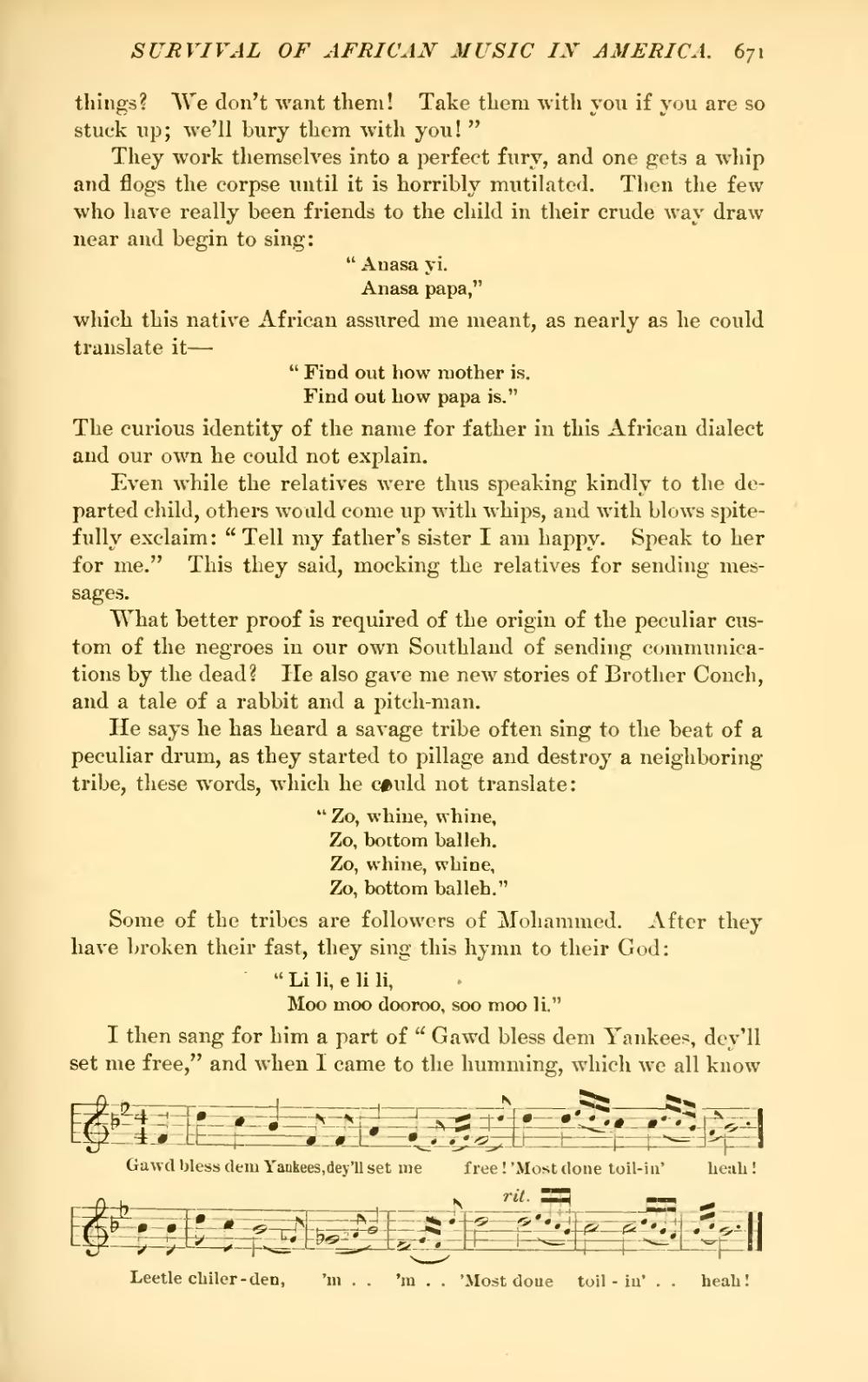things? "We don't want them! Take them with you if you are so stuck up; we'll bury them with you!"
They work themselves into a perfect fury, and one gets a whip and flogs the corpse until it is horribly mutilated. Then the few who have really been friends to the child in their crude way draw near and begin to sing:
"Anasa yi.
Anasa papa,"
which this native African assured me meant, as nearly as he could translate it—
"Find out how mother is.
Find out how papa is."
The curious identity of the name for father in this African dialect and our own he could not explain.
Even while the relatives were thus speaking kindly to the departed child, others would come up with whips, and with blows spitefully exclaim: "Tell my father's sister I am happy. Speak to her for me." This they said, mocking the relatives for sending messages.
What better proof is required of the origin of the peculiar custom of the negroes in our own Southland of sending communications by the dead? He also gave me new stories of Brother Conch, and a tale of a rabbit and a pitch-man.
He says he has heard a savage tribe often sing to the beat of a peculiar drum, as they started to pillage and destroy a neighboring tribe, these words, which he could not translate:
"Zo, whine, whine,
Zo, bottom balleh.
Zo, whine, whine,
Zo, bottom balleh."
Some of the tribes are followers of Mohammed. After they have broken their fast, they sing this hymn to their God:
"Li li, e li li.
Moo moo dooroo, soo moo li."
I then sang for him a part of "Gawd bless dem Yankees, dey'll set me free," and when I came to the humming, which we all know
![{ \time 4/4 \key bes \major \partial 4 \relative f' { \autoBeamOff f4 d' c bes f8 f | a4 \afterGrace g4( { f8) } \acciaccatura { f16[ g] } \afterGrace f2( { d'8) } | d4 \afterGrace d4 { ees16[( d c]) } c4 \afterGrace c { d16[( c bes]) } | \appoggiatura a8 bes2. \bar "."
bes8 bes | d c \afterGrace bes2.( { ges8) } | \afterGrace ges1( { aes8 bes2) } | \afterGrace f1( { g16[ f] d'8) } | d2 \afterGrace d2^\markup { \smaller \italic rit. } { ees16[( d c bes]) } | c2 \afterGrace c2 { d16[( c bes a]) } | \acciaccatura { bes16[ c] } bes2. \bar ".|." }
\addlyrics { Gawd bless dem Yank -- ees, dey'll set me free! 'Most done toil -- in' heah! Lee -- tle chi -- ler -- den, 'm __ 'm __ 'Most done toil -- in' heah! }
}](http://upload.wikimedia.org/score/8/e/8evn3i5kr718ho4zcjlps0q1s3u57dz/8evn3i5k.png)

